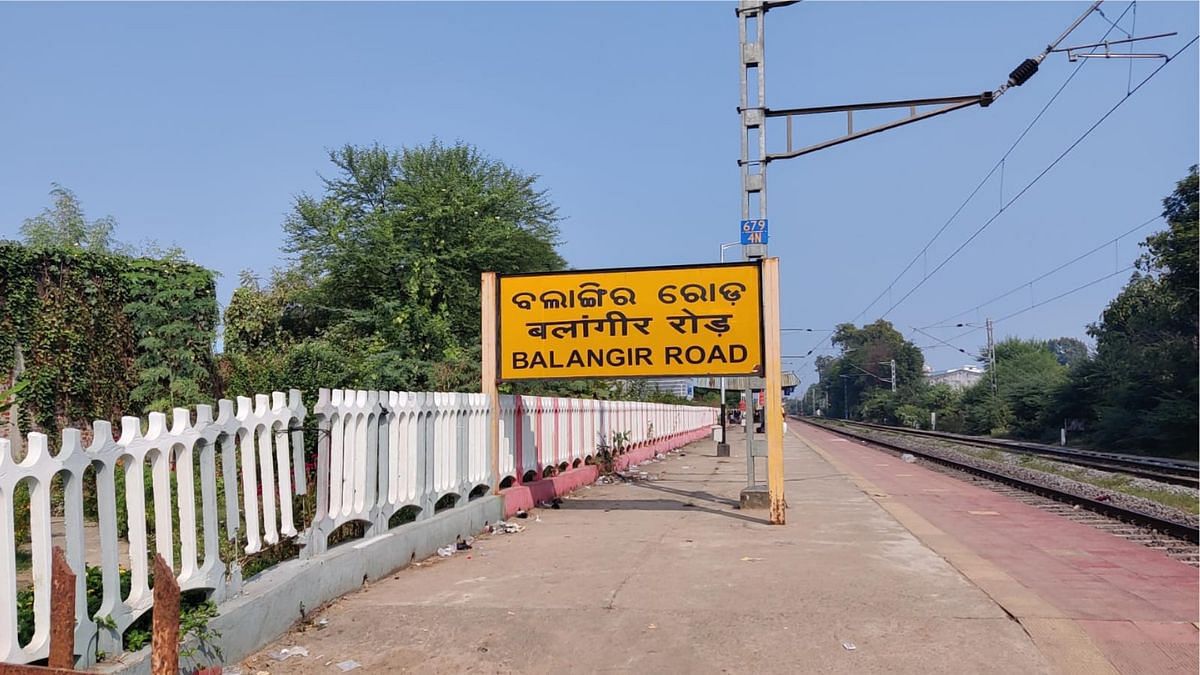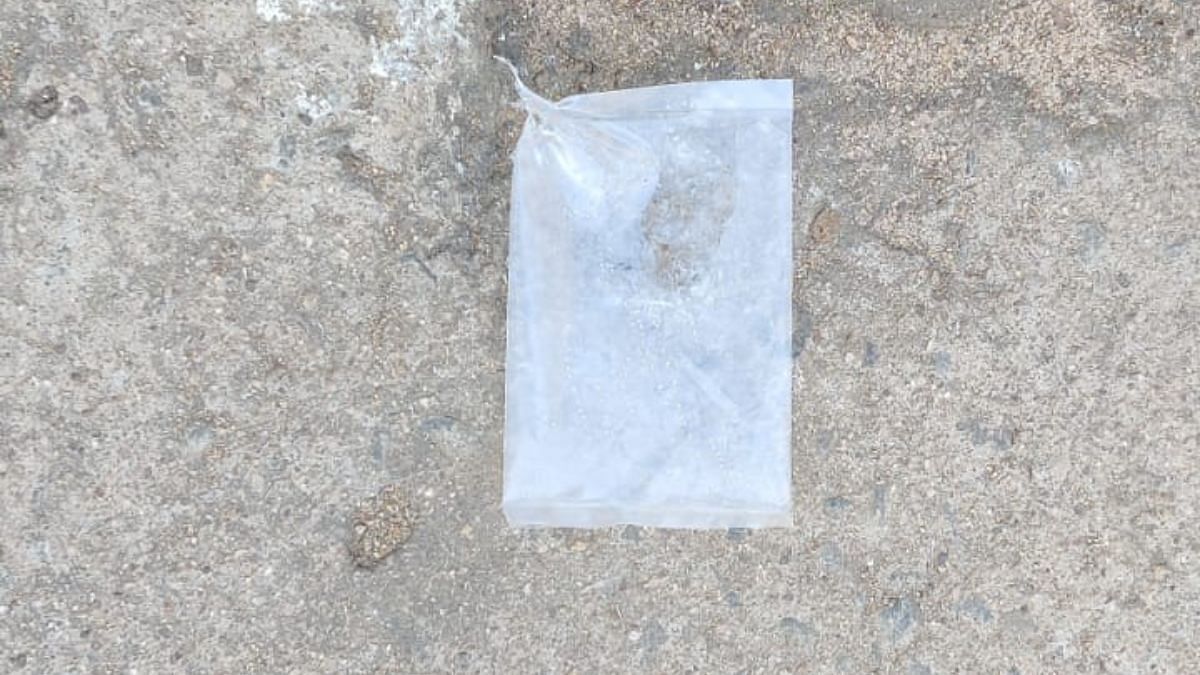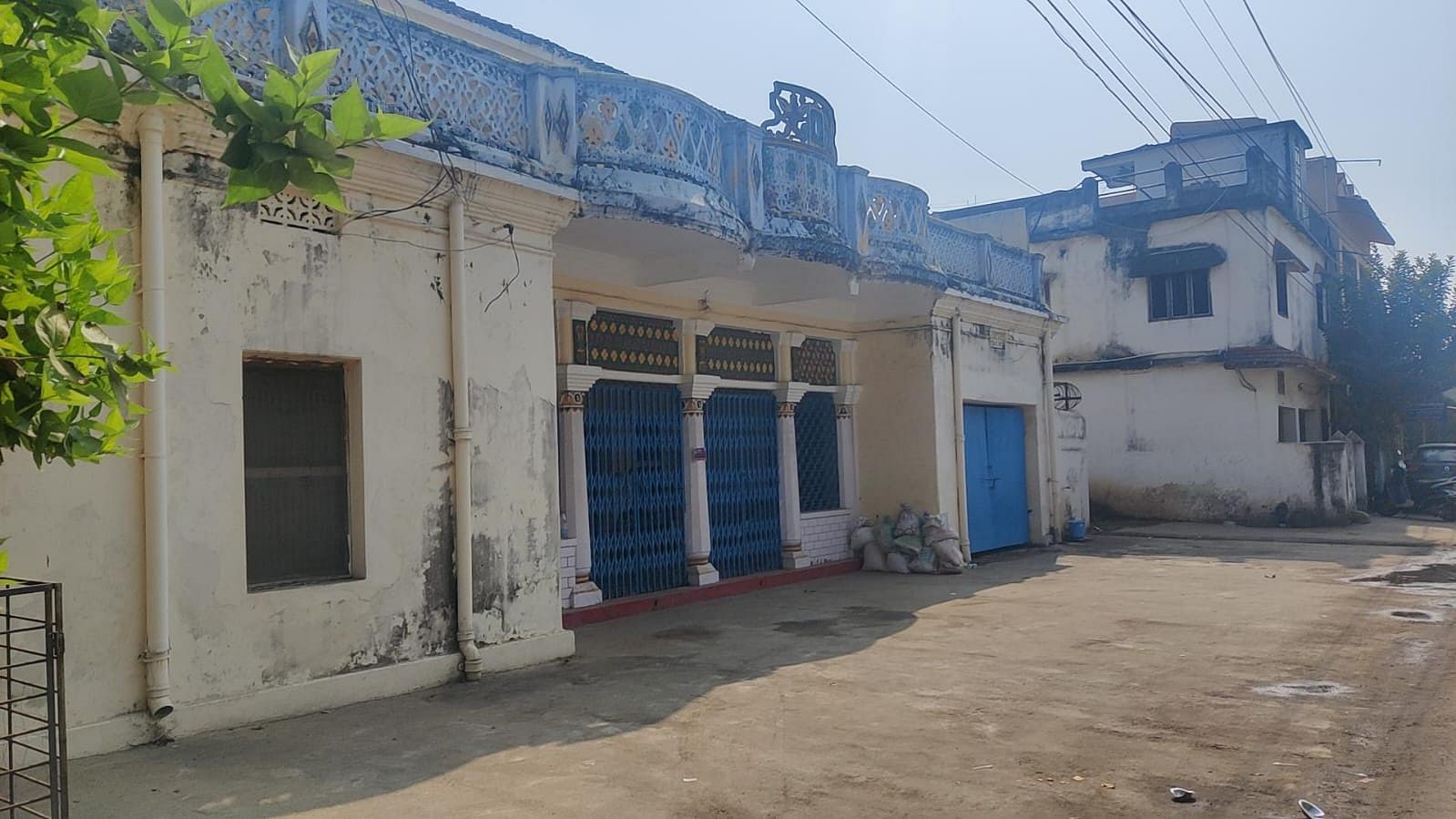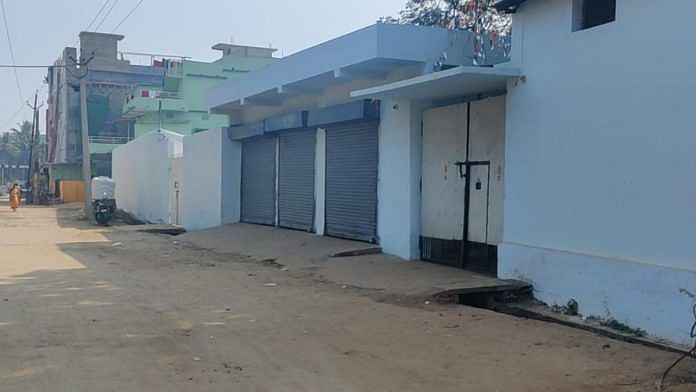Balangir, Odisha: At first glance, there’s nothing odd about the set of buildings on either side of the Balangir Road railway station — over 300 km away from Odisha’s state capital Bhubaneswar.
Perfectly nondescript, these buildings stand on less than an acre of land in Balangir’s Sudpara area — a manufacturing facility and some warehouses to the west of the train station, and residential quarters for workers to the east.
These structures form a part of the controversial Baldeo Sahu and Sons, a country-made liquor manufacturing company that has been at the centre of income tax raids on liquor baron and Congress Member of Parliament Dhiraj Sahu earlier this month, and subsequent cash recoveries of Rs 350 crore.
Set up in 1954 in Balangir by Dhiraj Sahu’s father Baldeo Sahu, the company allegedly monopolises the country liquor trade in western Odisha. According to excise officials ThePrint spoke to, while the exact scale of the firm’s business remains hidden behind an opaque and complex organisational structure, Balangir has been at the nerve centre of its operations — here, the company owns 46 of 64 manufacturing units, ThePrint has learnt.

Visits to local manufacturing facilities and conversations with excise officials in the state also revealed how inadequate government checks have enabled the Sahus to build their business empire.
The raids have snowballed into a massive controversy, with opposition parties such as the Bharatiya Janata Party (BJP) accusing the state government under Chief Minister Naveen Patnaik of political patronage.
ThePrint reached both Baldeo Sahu and Sons and the Chief Minister’s Office (CMO) for responses on the allegations. While the Public Relations Officer for Odisha’s CMO Sukanta Kumar Panda declined to comment, phone calls and messages to Dhiraj Sahu went unanswered.
However, in a public statement Friday, Sahu conceded that the money belongs to his firm. “What is happening today makes me sad,” he told news agency ANI. “I can admit that the money that has been recovered belongs to my firm…The cash that has been recovered is related to my liquor firms. These are proceeds from the sale of liquor”.
ThePrint also reached Pinaki Misra, spokesperson of the ruling Biju Janata Dal (BJD), who declined to comment, while calls to party MPs Sasmit Patra and Sarmistha Sethi went unanswered.
As the controversy continues to roil the state, ThePrint takes a look at how the country liquor trade works and how Baldeo Sahu and Sons has monopolised the trade in western Odisha.
Sahus’ monopoly in Balangir
Officials in Odisha’s excise department told ThePrint that country liquor is produced in 22 of the state’s 30 districts.
For the most part, country liquor manufacturing is a cash-heavy business with little accountability when it comes to revenue generation. According to officials that ThePrint spoke to, it’s precisely this nature that makes it difficult to regulate.
Significantly, the Western Odisha Development Council, an administrative set-up established by the state government in 1998, comprises 10 districts — Bargarh, Balangir, Boudh, Deogarh, Jharsuguda, Kalahandi, Nuapada, Sambalpur, Subarnapur, Sundargarh — and Athmallik sub-division of Angul district.
Of these, the trade of Sahu and Sons is particularly strong in the districts of Balangir and Sambalpur as well as Rayagada in southern Odisha, officials said.
Unlike the highly-regulated sale of Indian-made foreign liquor (IMFL), the country liquor manufacturing business caters primarily to the low-income labour class. “As a result, the business runs mainly on liquid cash of lower denominations,” one official told ThePrint.
Officials said that although Baldeo Sahu and Sons is known to own 46 manufacturing units — locally known as maudh bhattis — in Balangir alone, it’s difficult to know the exact number in the state. This is because of the firm’s business structure under which manufacturing units are shown to be registered under relatives’ names, they alleged.
According to an excise department official, besides its liquor manufacturing units, the firm also owns a distillery plant in Boudh district — which also houses its headquarters — which manufactures and sells spirit, an essential raw material for making IMFL.
The official added that although Sahu and Sons is licensed to sell IMFL, it doesn’t have the license to manufacture it.
Besides these, the Sahus have also forayed into the bottling business in Jharkhand and West Bengal, and also have other business interests in hotels, schools, and hospitals, Odisha officials said.
An official from the Balangir district excise office told ThePrint that under Odisha’s excise policy, a country liquor manufacturing company pays anywhere from Rs 3 lakh to Rs 8 lakh for its licence. Smaller manufacturing units often find this sum, which has to be paid four months in advance, prohibitive, the official said.
“As a result, over the years, Baldeo Sahu and Sons, which had more resources, grew rapidly at the expense of smaller players,” he said.
Also Read: ‘Sham loans, fabrication of books’: The Rs 35,000 cr DHFL case, ‘India’s biggest bank fraud’
‘The more you pay, the more you get’
Excise forms a significant part of the Odisha government’s revenues. In a written response to a question in the state assembly earlier this year, Excise Minister Aswini Kumar Patra reportedly said the state’s collection for 2022-23 had been Rs 6,455.06 crore — a 368 percent rise from the Rs 1, 379.91 crore collected in 2011-12.
In this part of the country, country-made liquor is produced using the Mahua flower. The Mahua is a tropical tree found largely in the central, southern, and north Indian plains and forests. It is acquired from rural Odisha, and the price is set at panchayat level, an excise department official told ThePrint.
The process of manufacturing country liquor involves taking out white flowers from mahua tree, which are then dried, crushed and soaked in water. This is left to ferment for a few days so that yeast present in the flowers converts the natural sugar present to alcohol. The final product of country liquor has, on average, an alcohol concentration of 15-20 percent.
According to another official in Odisha’s excise department, the state government has two policies to regulate the business of manufacturing country liquor — both concerning the sale and use of the Mahua flower.
The first obliges any manufacturer to a duty of Rs 1,450 per quintal of the flower. This is over and above the price of the flower, the official said.
On average, Mahua flowers cost Rs 2,000-3,000 per quintal. Significantly, according to Odisha’s excise rules, while there’s a tax on input costs, there’s none on the finished product.
The second policy is called the Minimum Guarantee Quota. Under this, for every Rs 1,000 of the license fee paid upfront, a manufacturer is guaranteed to get 0.786 quintal of Mahua.
This means that the higher the license fee, the more Mahua a manufacturer is entitled to, the official said, adding that while there’s a guaranteed minimum Mahua quota, there’s no upper limit to how much of the flower one can acquire.
“This, in turn, leaves the manufacturer to decide how much country liquor he wants to produce,” the official said. “They can choose to pay the licence fee upfront to maximise their revenue and gains, which could be in very high multiples.”
Sudarshan Nayak, a retired IAS officer who served as Odisha’s excise commissioner between 2006 to 2012, told ThePrint that there are three major problems in the country liquor business in the state.
“First, the licences for manufacturing, distribution, and selling of liquor should not be concentrated with one licensee. Second, there is no transparent system to check the exact manufacturing of liquor by any licence, and the third is that there is no maximum capping in the excise policy to restrict the manufacturing at a certain level,” he said.
Unknown scale
Given that much of the business of country liquor production is unregulated, the scale of this side of the company’s business — the number of units, their production capacity, total staff, sales volume, and details of their annual turnover — remains unknown.
But a labourer at their Dhanupali manufacturing plant told ThePrint that 50 people worked there in two 12-hour shifts to produce approximately 10,000 pouches of country liquor daily, each weighing 180 ml.

While the production cost of each pouch is Rs 15, these are then sold in the market at double the price, a retail shop owner selling one of these pouches in Balangir said.
According to a senior officer in the excise department, the scale and the penetration of the business in the rural parts of western Odisha make it hard to keep track of the business.
Since its target demographic is the labour class, most of the transactions are in small denominations, which explains why it’s so cash-heavy, the official said, adding that regulation becomes even more difficult because many of these pouches are sold by hawkers, he said.
All roads lead to Lohardaga
The Sahus belong to Jharkhand’s district Lohardaga — about 70 km from Jharkhand’s capital Ranchi. According to a Congress leader in the state, who spoke to ThePrint requesting anonymity, the Sahu family continues to wield significant clout there.
This week, a team of tax investigators had visited the Sahus’ ancestral home in the district during the raids to conduct geo surveillance.

Several of those working at the manufacturing and sale units of Baldeo Sahu and Sons told ThePrint that they had first travelled to Lohardaga in search of work. At one facility in Balangir district, for instance, one worker from Bihar’s Rohtas district said that a manager with Sahu’s other businesses had referred him to this job.
In Balangir’s Sudpara, locals speak about how the unit there was being run by two cousins, Bunty and Rajesh Sahu.
Political hot potato
The raids and the subsequent seizures have led to a massive political row in Odisha, with the state’s principal Opposition, the BJP demanding accountability from the ruling Biju Janata Dal (BJD) government led by CM Patnaik.
Addressing a press conference on 14 December, Odisha BJP spokesperson Anil Biswal accused Patnaik of having inaugurated a plant in the Sahus’ Boudh distillery in 2019.
“There have been different reasons attributed to the stacking of currency notes in Balangir, Titlagarh, and Sambalpur campuses belonging to a liquor manufacturer,” Biswal told ThePrint adding that there was no denying that hoarding of over Rs 300 crore in cash could not have been possible without state patronisation.”
Biswal said that Baldeo Sahu and Sons controls more than 300 of the nearly 500 country liquor plants in western Odisha. He also claimed that there have been no auctions for liquor licenses since Patnaik assumed office.
Patnaik has been Odisha’s CM minister for over two decades. In 2021, the BJD government introduced a lottery-based auction system for issuing licenses to the state’s IMFL and country liquor shops.
According to Biswal, reauctioning and retendering for liquor licences would bring more players into the game, making the game difficult for any one firm to maintain a monopoly.
“Even the state exchequer would get more money but the Patnaik government has chosen to give benefit to this liquor firm,” Biswal said, adding that the state government had illegally allotted water from Mahanadi to the Sahus’ Boudh distillery despite public protests.
But according to Pramod Mishra, a lawyer who has been a vocal critic of the business of country liquor manufacturing in Balangir, the scale of the business in Balangir and nearby districts signals political involvement “cutting across party lines”.
Politicians, he said, have allowed the industry to flourish unchecked because “it gives them financial muscles during elections”. But the scale of the recoveries could also indicate another worrying trend — that such manufacturing units are often used as money laundering hubs, not only for their own money but for others as well.
“This liquor trade is being operated through both legal and illegal ways and hence there is a lot of unchecked money that comes into business,” he told ThePrint. “Also, recovery of such huge amounts at country liquor manufacturing units points to such political money because the business of country liquor operates mostly on loose cash with denominations of a maximum of Rs 200.
(Edited by Uttara Ramaswamy)
Also Read: 5 years, 28 banks, Rs 23,000 cr debt — how ABG Shipyard pulled off ‘India’s biggest bank fraud’



